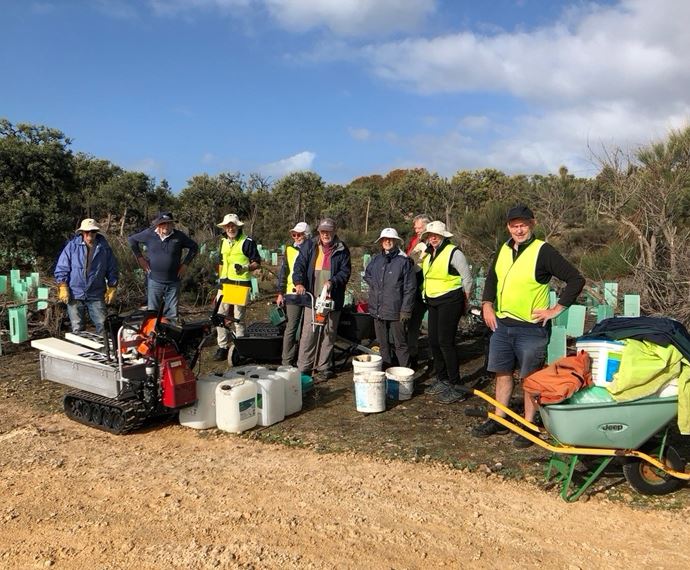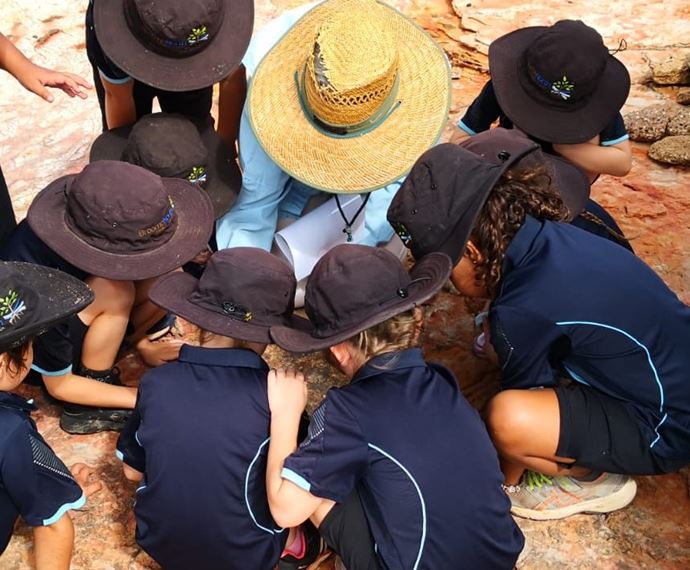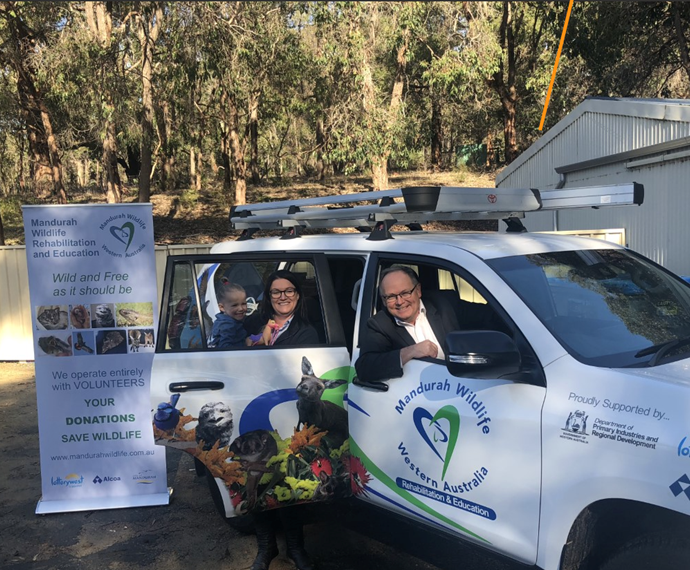Celebrating a festival of birds and biodiversity
Green Skills is an innovative organisation that develops and manages environmental and community projects across Perth and regional Western Australia. Established in 1989 and with offices in Denmark, Albany and Perth, Green Skills’ vision is to be a driver of change toward a more sustainable community. The organisation promotes environmental sustainability and makes it more accessible by giving people in the community practical tools and insights to make changes.
Through this grant from Lotterywest, Green Skills continued to run festivals and workshops to promote sustainable living and biodiversity through events, including the 2020 Sustainable Community Festival, Birds and Biodiversity Festival, Connecting the Community Series and Community Garden Education Series.
Towards a series of free festivals and workshops which will educate the community in sustainable living in the Great Southern region.
Green Skills Inc.
11/26/2019
$105,950
Lotterywest
$25,000
Great Southern
- Over 200 people engaged with the program across the wide range of activities including exhibitions, film, outings and surveys tours.
- Volunteers were able to meaningfully engage in social activities, expand their learning, and help the environment.
- Participants built tangible skills for fauna surveying and other environmental monitoring programs through citizen science projects.
- Growing the event progressively from small beginnings, meant that after eight years of operation and project refinement, the 2020 Festival did not have any major challenges
- Strong relationships across the sector built over time generates goodwill, support and networking opportunities
- Embracing new technologies, social media and the use of apps in environmental monitoring built capacity and reached new people
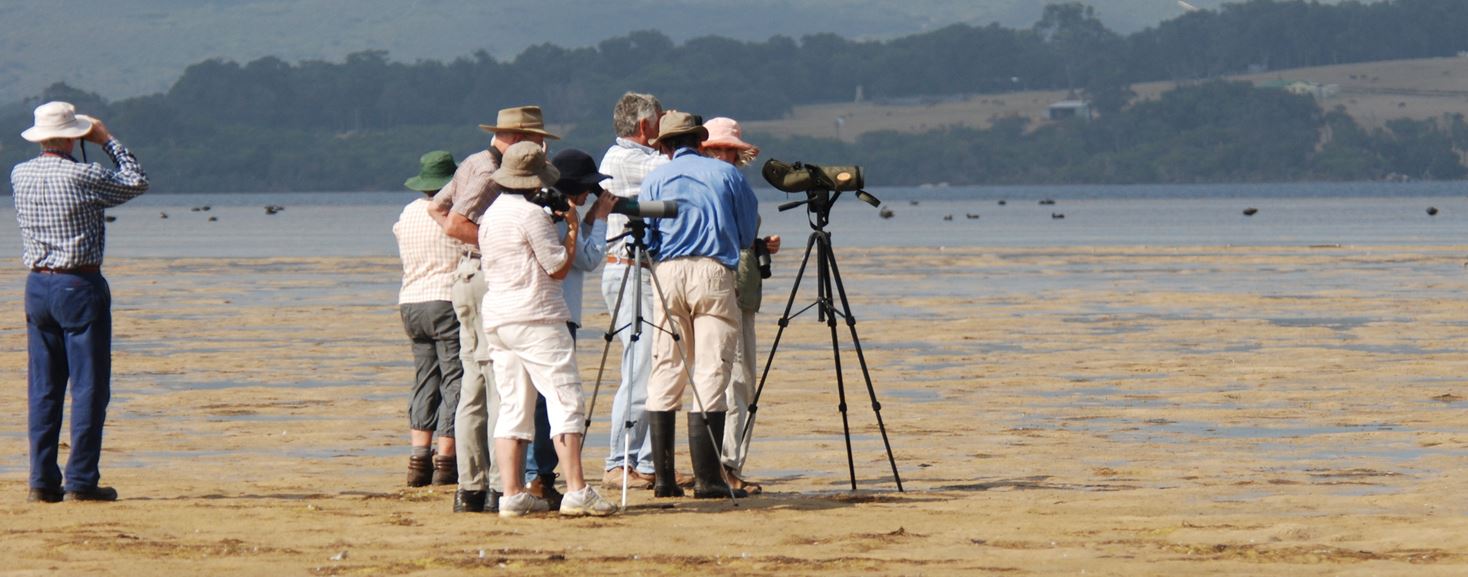
Opportunity
Projections show that based on the consumption of finite resources in developed economies, if the per capita consumption of the United States of America and Europe was replicated around the world, we would need the resources of 1.5 earths [1]. In terms of promoting behaviour change and environmental conservation, nature activities and observing role models showing an interest in nature have been shown to encourage children and young people to work towards environmental protection [2].
The Great Southern is a region with an important amount of flora and fauna. This includes part of the UNESCO-listed Fitzgerald Biosphere which is home to 12 threatened fauna and 39 flora species, as well as 20% of WA’s described plant species, many of which are not found anywhere else in the world [3]. Raising community awareness about the region’s biodiversity and giving people the skills necessary to live more sustainably is crucial to ensure future generations can enjoy what the region has to offer. Research has shown that citizen science initiatives can play an important role in species extinction mitigation strategies, expanding knowledge about threatened species and enhancing understanding in the general public around biodiversity [4].
Approach
Green Skills utilised grant funds to run the Sustainable Community Festival, South Coast Birds and Biodiversity Festival, Connecting the Community Series and Community Garden Education Series. These free festivals and workshops promote and educate the community in sustainable lifestyles, biodiversity, and the natural environment of the Great Southern region of Western Australia.
The Bird and Biodiversity Festival specifically focuses on promoting an understanding of bird fauna and biodiversity of WA’s southern coast through education and entertaining community events.
2020 marked the eighth iteration of the South Coast Festival of Birds, led by Green Skills and Birdlife Australia. The festival aimed to celebrate and help to conserve the region’s incredible birdlife and biodiversity.
“Birds are an entry point into understanding our world…they are a great way of introducing people to interacting with the natural environment, both to educate and also engage them to be involved. Both for their own benefit, but also to help protect this wonderful biodiversity.”
Basil Schur, Festival Coordinator
The Festival has grown slowly from small beginnings, with collaboration from local bird groups, and encourages people to interact with and understand their local environment. Activities in 2020 included Gondwana art exhibitions, harvest film nights, outings and workshops, library talks, a shore and water bird identification event, talks and symposiums, a Gondwana eco and bird tour outing and associated bird community education events.
The main event was the Festival of Birds Symposium, which in 2020 included speakers Professor Steve Hopper, Dr Judy Fisher,
Professor Dale Roberts, Dr Vicki Stokes and Viv Read, covering restoration genetics, conservation using citizen science and biodiversity from local and international perspectives.
University of Western Australia (UWA) Albany also hosted renowned ABC science journalist Robyn Williams at the talk and forum ‘Climate Science and Our Future’ to discuss Science, Climate Action and the Biodiversity Crisis facing humanity and the planet.
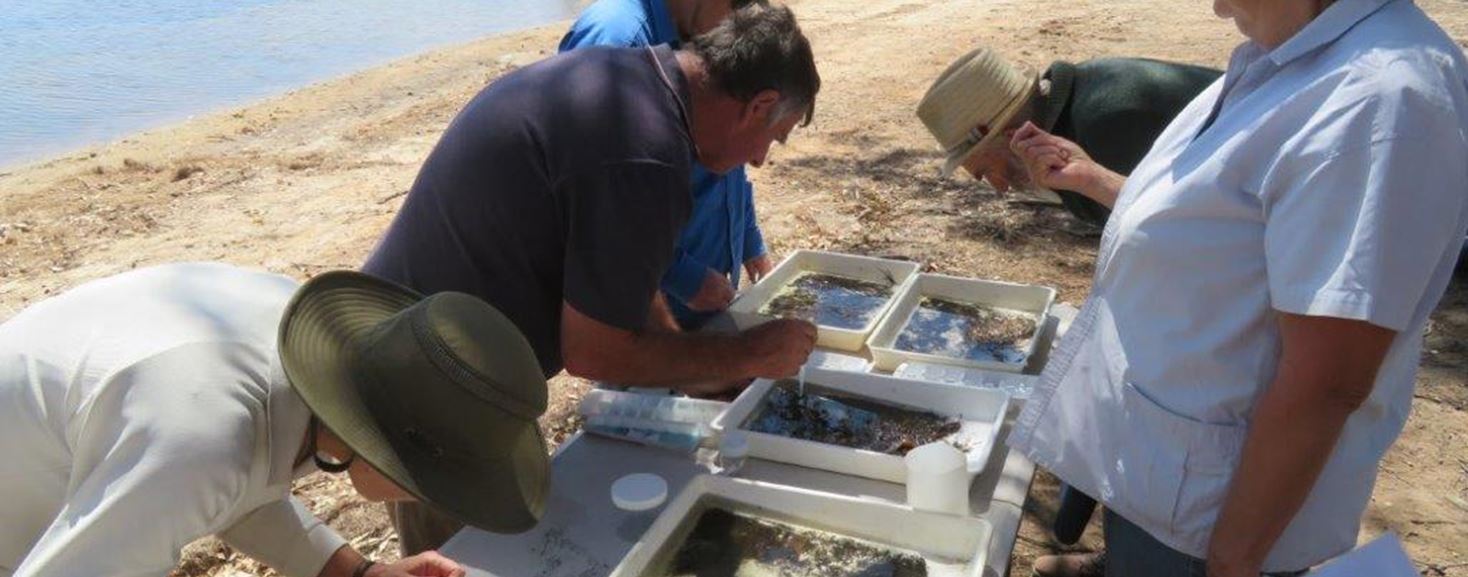
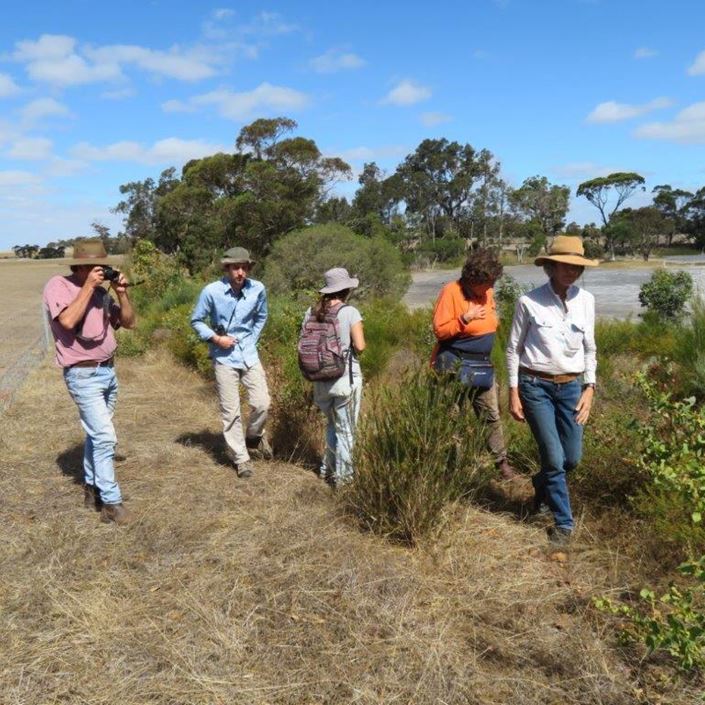
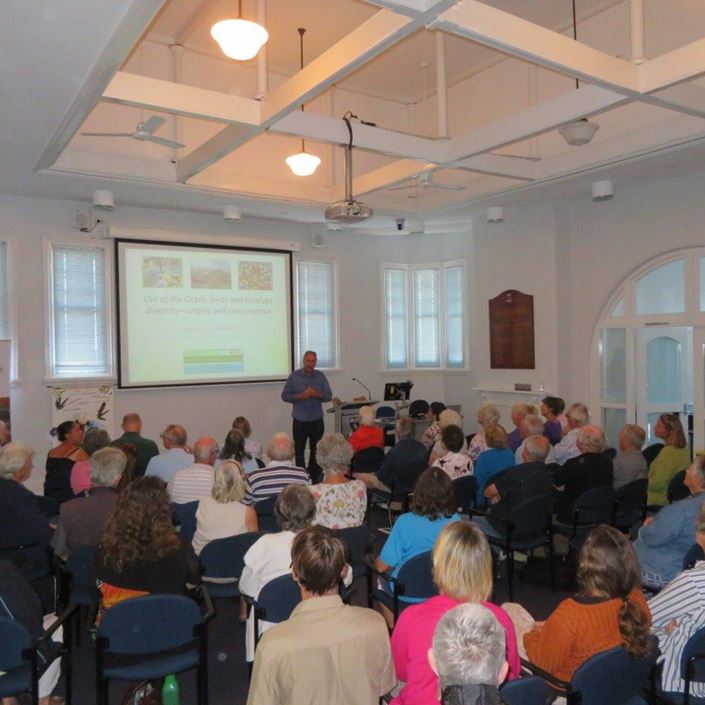
Impacts and outcomes
During the festival, over 200 people engaged with the program across the wide range of activities including exhibitions, film, outings and surveys tours. Through the association with the Albany Kite Fiesta, the event expanded its reach to over 2000 people.
The event also provided an opportunity to build connection through volunteering, as many of the partner organisations are volunteer-run or have large groups of volunteers. On average, around 80 volunteers each year are involved in the Festival. Many of the volunteers are retired, and the Festival provides an opportunity to meaningfully engage in social activities which also expand their learning and help the environment.
Through the citizen science projects incorporated in the event, participants build tangible skills for fauna surveying and other environment monitoring programs. One example is the excursion to Balijup Reserve where 18 to 20 participants embarked on a four-day camp. These participants tend to stay involved in citizen science in the Great Southern region or in their home communities. Over the years this has helped to build the numbers in local bird groups and maintain momentum for the difficult task of monitoring shorebird populations.
The Great Cocky Count, a Birdlife WA initiative, which aims to monitor the three species of Black Cockatoo across the South West is another example of community engagement through citizen science projects. This initiative has helped to increase people’s engagement in the count from right across the region, a vital tool for Birdlife WA in the conservation of the species.
Green Skills noted a strong demand for courses like conservation and biology offered through Great Southern TAFE and UWA’s Albany campus, with applicants often becoming exposed to environmental conservation through citizen science events.
What worked
Growing the event progressively
The event has slowly grown from small beginnings with 2020 marking its eighth iteration. The event initially focused on migratory shorebirds, which migrate from the northern hemisphere, and involved local bird groups. However, the event has since gradually grown to include other bird species, fauna and biodiversity.
Building strong relationships across the sector
Well established relationships with other organisations and stakeholders have been key to the success of the event. This has also helped to generate goodwill and networking within the Great Southern.
Embracing new technology to enhance capacity
Embracing new technologies, social media, and use of apps in environmental monitoring. While this is not always easy for all the participating demographics, it is key to developing engagement and reaching new people. The benefit is not only in apps that let citizen organisations document their observations, but also through drone photography, which can give a more complete aerial picture of the environment.
REFERENCES
- Andrady, A. L. (2015). Plastics and environmental sustainability. John Wiley & Sons.
- Chawla, L., & Cushing, D. F. (2007). Education for strategic environmental behavior. Environmental education research, 13(4), 437-452. https://doi.org/10.1080/13504620701581539
- Parks and Wildlife Service. (2018, 23/03/2018). Fitzgerald Biosphere listing brings international recognition. Department of Biodiversity Conservation and Attractions, Goverment of Western Australia. Retrieved 26/08 from https://www.dpaw.wa.gov.au/news/media-statements/minister-for-environment/item/3484-fitzgerald-biosphere-listing-brings-international-recognition
- Steven, R., Barnes, M., Garnett, S. T., Garrard, G., O'Connor, J., Oliver, J. L., Robinson, C., Tulloch, A., & Fuller, R. A. (2019). Aligning citizen science with best practice: Threatened species conservation in Australia. Conservation Science and Practice, 1(10), e100.
Learn about wellbeing
Understand how your community is going to help you to better target and plan your project.
Ready to plan your project?
Understand your vision, plan your impact and report on the outcomes of your project with three easy interactive tools in the Community Impact Planner.
Acknowledgement of Country
The Western Australian Community Impact Hub acknowledges and pays respect to the Traditional Owners of the land on which we are based, the Whadjuk people of the Noongar Nation and extends that respect to all the Traditional Owners and Elders of this country. We recognise the significant importance of their cultural heritage, values and beliefs and how these contribute to the positive health and wellbeing of the whole community.
![Mt Gibson Brad Leue AWC[1]](/media/klfbvjje/mt_gibson_brad_leue_awc-1.jpg?anchor=center&mode=crop&width=690&height=570&rnd=133045353289800000&quality=80)
![Carnaby's Cockatoo Flying Over Restoration On Monjebup Reserve. Photo By Krysta Guille[1]](/media/3xkoo5ve/carnaby-s_cockatoo_flying_over_restoration_on_monjebup_reserve-_photo_by_krysta_guille-1.jpg?anchor=center&mode=crop&width=690&height=570&rnd=133053022173100000&quality=80)
